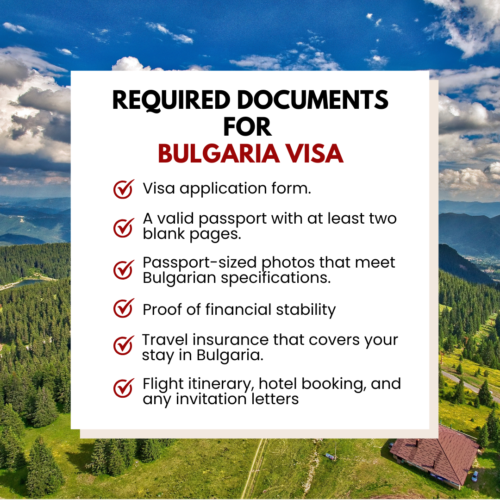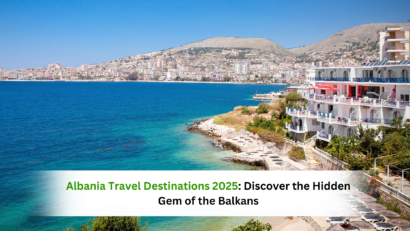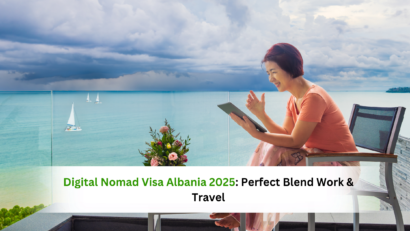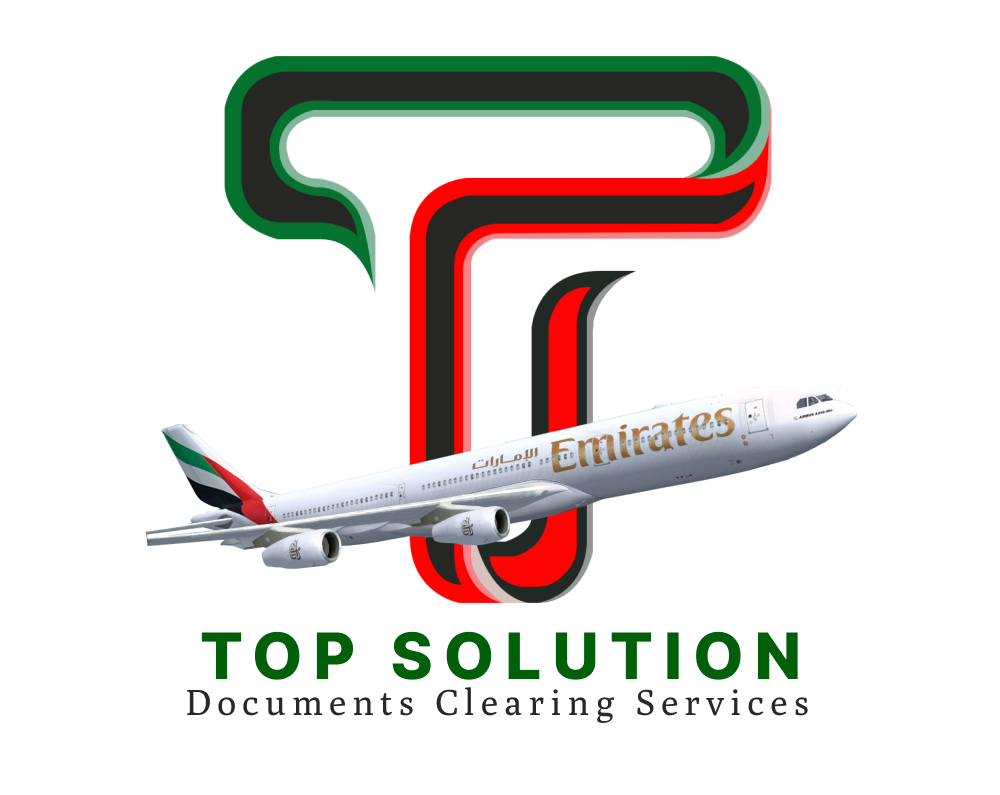Top Visa Options for Expats and Entrepreneurs
Complete guide on visa options, application process, and benefits of living in Bulgaria for expats and entrepreneurs.
Imagine waking up in a country where centuries-old history meets modern-day opportunities, all at an affordable cost of living. Moving to Bulgaria offers this dream to expats and entrepreneurs alike. Curious about what makes Bulgaria the perfect destination? Let’s explore!
In this detailed guide, we’ll explain the different visa options available for expats and entrepreneurs planning to move to Bulgaria in 2024. We’ll also discuss the step-by-step process for applying for a Bulgarian visa, including the documents you need, the cost, and processing times. If you’re looking for expert assistance, Visa King, a trusted company specializing in visa services and business setups in Dubai, can help make your transition to Bulgaria smooth and hassle-free.
Understanding Bulgaria’s Visa Options for Expats and Entrepreneures
Bulgaria is part of the European Union, offering numerous opportunities for expats and entrepreneurs looking to relocate. However, like any country, obtaining the right visa is crucial to ensure you can legally live, work, or start a business in Bulgaria. Depending on your situation, you might need a short-term visa for travel, a long-term visa for work, or even a special permit if you’re starting your own business.

Let’s explore the various visa options available for expats and Entrepreneurs:
1. Short-Term Schengen Visa (Type C)
The Schengen Visa (Type C) is perfect for those who plan to stay in Bulgaria for a short period—up to 90 days within a 180-day period. This visa is suitable for the following reasons:
Benefit: This visa lets you explore Bulgaria’s potential without a long-term commitment. Perfect for scouting opportunities!
2. Long-Term Visa (Type D)
For those planning to stay in Bulgaria for more than 90 days, a Long-Term Visa (Type D) is required. This visa is designed for individuals wishing to:
If you’re planning to move to Bulgaria as an entrepreneur, this visa type is crucial, as it will allow you to legally live and work in the country. You can also apply for a residence permit once in Bulgaria.
Benefit: This visa provides stability for building a life in Bulgaria and opens pathways to permanent residence.
3. Work Permit
If you plan to work and moving to Bulgaria, you’ll typically need a work permit. This is necessary for foreign nationals who are not from the EU/EEA countries. To apply for a work permit, you’ll need to secure employment with a Bulgarian company or an international company operating in Bulgaria.
However, certain highly-skilled professionals may be eligible for expedited procedures, so check with your nearest Bulgarian embassy or consulate for more details.
4. Entrepreneur Visa (Business Visa)
Bulgaria has become a popular destination for entrepreneurs due to its favorable tax rates, low operational costs, and its position as a gateway to the European Union market. If you are looking to start a business in Bulgaria, the Entrepreneur Visa allows foreign nationals to establish and operate a company within the country.
This visa offers several benefits:
For entrepreneurs looking to set up a business in Bulgaria, Visa King offers comprehensive services that can help streamline the process of business setup and navigating visa regulations.
Why Choose Bulgaria? Top Benefits for Expats and Entrepreneurs
1. Affordable Living Costs
Bulgaria offers one of the lowest living costs in the EU, ensuring that your income or business profits stretch further. Enjoy high-quality services and goods at reasonable prices.
2. Thriving Entrepreneurial Scene
With low corporate tax rates (10%) and easy access to the EU market, Bulgaria is a business-friendly destination for entrepreneurs seeking growth and innovation.
3. Strategic Location
Nestled in Southeast Europe, Bulgaria provides quick access to major European cities and markets. It’s a perfect base for both business and leisure travel.
4. Rich Cultural Heritage
From ancient Roman ruins to vibrant traditions, Bulgaria’s cultural landscape is a treasure trove for history enthusiasts and cultural explorers.

5. Beautiful Natural Landscapes
Whether it’s the picturesque Black Sea coastline, the majestic Balkan Mountains, or serene countryside, Bulgaria’s natural beauty is unparalleled.
6. Gateway to the EU
Living in Bulgaria opens the door to the entire European Union, offering seamless travel, trade opportunities, and cultural exchange.
7. Friendly and Welcoming Environment
Bulgarians are known for their warm hospitality, making it easy for expats to integrate and feel at home.
8. High-Quality Education and Healthcare
Affordable and reliable healthcare facilities, coupled with access to quality education, make Bulgaria an ideal choice for families.
9. Safety and Stability
Bulgaria is known for its safe cities and stable political environment, offering peace of mind to residents and businesses alike.
How to Apply for a Bulgaria Visa: A Step-by-Step Guide
Now that you’re familiar with the various visa options, let’s go through the process of applying for a Bulgarian visa.
Step 1: Determine Your Visa Type
Before applying for a visa, it’s important to decide which type best suits your purpose. For example, if you’re moving to Bulgaria to work or study, you’ll need a long-term visa. If you’re traveling for a short-term business trip, a Schengen visa will suffice.
Step 2: Gather Required Documents
The next step is to gather all necessary documentation. While the exact requirements depend on the type of visa you’re applying for, the general documents include:
Make sure all documents are in order and legalized (where necessary) to avoid delays in your application process.

Step 3: Complete and Submit the Application
Fill out the visa application form accurately, ensuring that all information matches your documents. Double-check for any errors, as mistakes can cause delays. After filling out the application form, submit it to the nearest Bulgarian Embassy or Consulate.
Step 4: Book an Appointment
For most visa types, you will need to schedule an appointment with the Bulgarian Embassy or Consulate. Many embassies offer online appointment booking, but it’s a good idea to call ahead or check the embassy’s website to confirm their procedures.
Step 5: Attend the Appointment
On the day of your appointment, bring all your documents and be prepared to answer questions from the consular officer. This may include questions about your stay, your financial stability, and your travel plans.
Step 6: Pay the Visa Fee
Visa fees vary depending on the visa type and your nationality. Be sure to bring the correct payment method, which is usually in cash or via credit/debit card.
Step 7: Wait for Approval
Visa processing can take anywhere from 15 to 30 days. It’s essential to apply well in advance to avoid any last-minute surprises. Once approved, you’ll receive your visa and can proceed with your plans to move to Bulgaria.
For personalized guidance, rely on Visa King, a trusted partner in visa services and business setup.
What You Need to Know About Living and Working in Bulgaria as an Expat
Bulgaria has become an increasingly popular destination for expats due to its affordable living costs, beautiful landscapes, and welcoming environment. Here are some things to consider when moving to Bulgaria:
Cost of Living
Bulgaria is one of the most affordable countries in the EU, offering lower living costs compared to many Western European nations. Rent, food, transportation, and utilities are all relatively inexpensive, making Bulgaria an attractive option for expats on a budget.
Language and Culture
While Bulgarian is the official language, many Bulgarians speak English, especially in larger cities like Sofia, Plovdiv, and Varna. Learning basic Bulgarian will help you settle in faster, especially in rural areas. The country has a rich cultural heritage, offering a blend of European and Balkan traditions, and the people are known for their hospitality.
Business Environment
Bulgaria is a great place for entrepreneurs, offering a stable business environment with low taxes and minimal bureaucracy. Setting up a business in Bulgaria is relatively straightforward, and with Visa King, you can receive expert guidance to navigate the legal and regulatory processes.
Frequently Asked Questions (FAQs)
Conclusion
Whether you’re planning to move to Bulgaria for work, business, or study, understanding your visa options is the first step in the journey. With a rich culture, stunning landscapes, and endless opportunities, Bulgaria awaits your story. Take the first step and make this dream a reality today! With the right visa and proper documentation, your relocation to Bulgaria can be a smooth and exciting experience.
📩 Ready to start your Bulgarian adventure? Contact Visa Kingfor expert guidance and personalized support!







